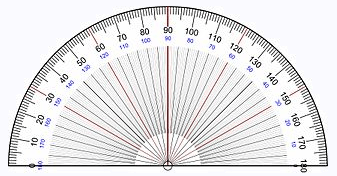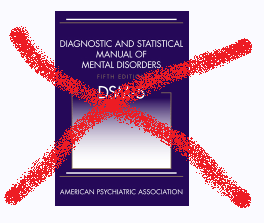NIMH Director issues joint statement with APA President-elect on DSM’s validity as diagnostic tool
May 16, 2013
NIMH Director issues joint statement with APA President-elect on DSM’s validity as a diagnostic tool
Post #248 Shortlink: http://wp.me/pKrrB-308

Less than two weeks after throwing DSM under the bus, NIMH’s Director, Thomas Insel, has issued a joint statement with APA President-elect, Jeffrey Lieberman.
This week, DSM…
…represents the best information currently available for clinical diagnosis of mental disorders
In a Pharmalot report titled NIMH Director Says The Bible Of Psychiatry Is Valid, After All, Ed Silverman writes:
‘Just 10 short days after trashing the widely regarded bible of psychiatry for lacking validity, National Institutes of Mental Health director Tom Insel has had a change of heart. Along with American Psychiatric Association president-elect Jeff Lieberman, he has now issued a statement saying the forthcoming version…is a valuable diagnostic tool. Their missive amounts to a combination of face saving and damage control…’
Report, here, from Sharon Jayson, for USA Today:
NIH official clarifies criticism of diagnostic manual
‘The groups also make it clear that DSM-5 isn’t going away.
‘DSM-5 and RDoC represent complementary, not competing, frameworks…As research findings begin to emerge from the RDoC effort, these findings may be incorporated into future DSM revisions and clinical practice guidelines,” the statement says. “But this is a long-term undertaking. It will take years to fulfill the promise that this research effort represents for transforming the diagnosis and treatment of mental disorders.”‘
1 Boring Old Man’s take here: a long and winding road…
Gary Greenberg at the New Yorker: The Rats of N.I.M.H.
Tuesday’s joint statement from Thomas Insel and Jeffrey Lieberman, here:
Or here on NIMH site: DSM-5 and RDoC: Shared Interests
Full text APA Release No. 13-37
Eve Herold, 703-907-8640 May 14, 2013
press@psych.org Release No. 13-37
Erin Connors, 703-907-8562
econnors@psych.org
Jeffrey A. Lieberman, M.D., president-elect, APA
NIMH and APA have a shared interest in ensuring that patients and health providers have the best available tools and information today to identify and treat mental health issues, while we continue to invest in improving and advancing mental disorder diagnostics for the future.
Today, the American Psychiatric Association’s (APA) Diagnostic and Statistical Manual of Mental Disorders (DSM), along with the International Classification of Diseases (ICD) represents the best information currently available for clinical diagnosis of mental disorders. Patients, families, and insurers can be confident that effective treatments are available and that the DSM is the key resource for delivering the best available care. The National Institute of Mental Health (NIMH) has not changed its position on DSM-5. As NIMH’s Research Domain Criteria (RDoC) project website states, “The diagnostic categories represented in the DSM-IV and the International Classification of Diseases-10 (ICD-10, containing virtually identical disorder codes) remain the contemporary consensus standard for how mental disorders are diagnosed and treated.”
Yet, what may be realistically feasible today for practitioners is no longer sufficient for researchers. Looking forward, laying the groundwork for a future diagnostic system that more directly reflects modern brain science will require openness to rethinking traditional categories. It is increasingly evident that mental illness will be best understood as disorders of brain structure and function that implicate specific domains of cognition, emotion, and behavior. This is the focus of the NIMH’s Research Domain Criteria (RDoC) project. RDoC is an attempt to create a new kind of taxonomy for mental disorders by bringing the power of modern research approaches in genetics, neuroscience, and behavioral science to the problem of mental illness.
The evolution of diagnosis does not mean that mental disorders are any less real and serious than other illnesses. Indeed, the science of diagnosis has been evolving throughout medicine. For example, subtypes of cancers once defined by where they occurred in the body are now classified on the basis of their underlying genetic and molecular causes.
All medical disciplines advance through research progress in characterizing diseases and disorders. DSM-5 and RDoC represent complementary, not competing, frameworks for this goal. DSM-5, which will be released May 18, reflects the scientific progress seen since the manual’s last edition was published in 1994. RDoC is a new, comprehensive effort to redefine the research agenda for mental illness. As research findings begin to emerge from the RDoC effort, these findings may be incorporated into future DSM revisions and clinical practice guidelines. But this is a long-term undertaking. It will take years to fulfill the promise that this research effort represents for transforming the diagnosis and treatment of mental disorders.
By continuing to work together, our two organizations are committed to improving outcomes for people with some of the most disabling disorders in all of medicine.
The American Psychiatric Association is a national medical specialty society whose physician members specialize in diagnosis, treatment, prevention, and research of mental illnesses including substance use disorders.
Visit the APA at www.psychiatry.org
###
More on the RDoC from the NIMH website
The National Institute of Mental Health Strategic Plan Released August 2008

